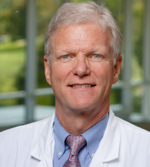
From the 7/24/2020 newsletter
Medicine and the Humanities
MCW Art Club
Creative expression is an important part of my life and many others’ around MCW. The sciences are often associated with analytical and academic pursuits, so it may be surprising to learn how many people in these fields are also highly creative. The arts provide both personal and professional benefits. For example, visual art can be helpful for cathartic reasons, but also for developing objective observation skills. Here I primarily talk about art for expression.
Personally, I have dabbled in several creative pursuits, including theater, singing, and dancing, but am primarily a visual artist. While I publicly share my visual art, I rarely sing in front of others. Students know me for my anatomical illustrations, my partner knows me for having oil paint all over me. My best friend knows I will sing to her when her fibromyalgia is acting up even if I’m shy about it. These activities are my lifeblood. In private, they are what I turn to when I’m overjoyed or overwhelmed with grief. I sing when I feel so full of a feeling it must exit my body – take a deep breath and make as loud a sound as my petite body can produce. This summer has involved a lot of singing. I draw or paint to create my own world, capture a memory, lean into a feeling, or frankly to zone out and relax.
Our attention is drawn to the fact that we are living in “unprecedented times” at every waking moment. From the global COVID-19 pandemic to heightened awareness of racial issues, tensions are running high. Additionally, many of us are spending more time at home than usual and craving connection with other human beings. Time for the arts to step in. When we all went into lockdown in March, I created a virtual MCW Art Club for anyone from MCW to post their creative endeavors, whether that means visual art, music, poetry, or short stories. This is a fully online club (Facebook, Instagram, Twitter) with the hope of building artistic community from a distance. All MCW personnel are invited to participate – staff, faculty, students from all campuses and programs. It has been amazing to see the talent across our campuses shared so far.
We have had participants share paintings, cultural art, pathology art, pieces of music from various instruments (originals and covers), anatomical art, miniature painting, wood burning design, knitting, and poetry! Several examples are shown below. Chris Knight from MCW Central Wisconsin commented on creating alibrijes this summer with his daughter (shown below), “Art is a very therapeutic escape. Doing a project with my daughter was special because she loves doing art and it gave her a significant distraction during quarantine. The fact that we could make it culturally relevant for our family added to it.”
You can view our collection or share your own work via our Facebook page “MCW Art Club” or using the hashtag #MCWArtClub on Instagram or Twitter. Of course, not all art needs to be shared. If you want your work shared, but are hesitant for whatever reason, you may send pieces to me for anonymous posting. I hope readers are encouraged to share their work in our digital club, but more than that, I hope you keep creating for whatever reason drives you.
MCW Art Club Sneak Preview:

An illustration by Dr. Patitucci














